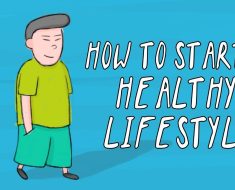"Some Prostates Are Larger Than Others" If a healthy diet can slow down the
abnormal growth of prostate cancer cells, what about the abnormal
growth of normal prostate cells? Benign prostatic hyperplasia—BPH—
enlargement of the prostate gland, which surrounds the urethra
as it exits the bladder. If the gland gets too enlarged, it can
cut down on the normal flow of urine. So you can be left with
hesitant flow, a weak stream, inadequate emptying of the
bladder, so you have to keep getting up at night to drain off
as much as you can at a time. It can leave you dribbling, irritated;
it can lead to urine retention; so, you got a stagnant pool in
there that can get infected. Ejaculation problems. In the United States, it affects
about 50% of men in their 50s; 80% of men in their 80s—
it’s an epidemic! 16 million American men. And then, it tends to just get worse,
growing larger by the day.
A billion dollars a year are
spent on drugs to treat it; another billion on supplements. Surgery is up next; lots of different Roto-Rooter-type techniques with
innocent sounding acronyms, like TUMT, TUNA, and TURP, disguising
the rather unpleasant reality. The Ts stand for transurethral,
meaning up the penis, with an instrument that
looks like this—a resectoscope. Then, you’re left with words like
microwave thermotherapy and needle ablation. They just tunnel up there,
and start burning. Sometimes, they use lasers
to burn out a shaft. And these are the
“minimally invasive” options. The gold standard remains transurethral
resection of the prostate, where they just go up there and
core it out with a loop of wire.
Side effects include
“postoperative discomfort.” Ya think? There’s got to be a better way. It’s so common in the Western world that most doctors just assume it’s just
an inevitable consequence of aging. But let’s look around the world. In China, a medical college in Beijing
reported that there was not 80% of the population affected, but
about 80 cases, period. 84 cases over a 15-year timespan. It used to be considered a rare
occurrence in China, but the incidence of both
BPH and prostate cancer started “rising quickly,” and now,
the incidence of prostate enlargement in China is similar to that
in developed countries. Why? Well, the researchers suggest
it’s for the same reason for their skyrocketing cancer rates—a shift from
their more traditional plant-based diet to one with more animal
fat and animal protein. So, BPH may be like heart disease—
a natural consequence not of aging, but of eating an unhealthy diet. It may only be standard to get
an enlarged prostate and die of a heart attack for those eating
the Standard American Diet. People eating healthy diets
may be familiar with TVP, textured vegetable protein (used
for making a mean veggie chili)— blissfully ignorant that for others,
the acronym may stand for transurethral electrovaporization
of the prostate.






